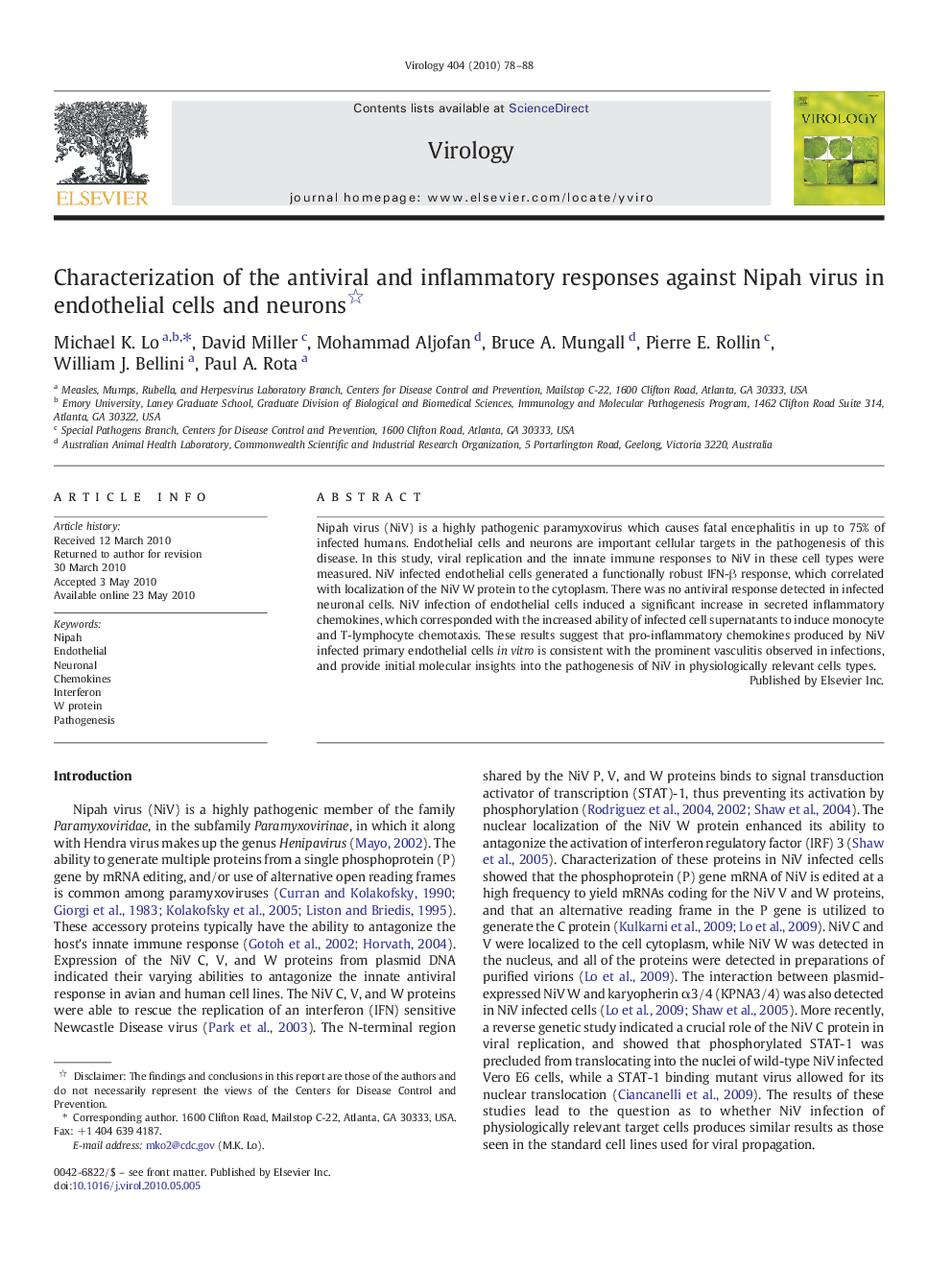| Article ID | Journal | Published Year | Pages | File Type |
|---|---|---|---|---|
| 3425412 | Virology | 2010 | 11 Pages |
Nipah virus (NiV) is a highly pathogenic paramyxovirus which causes fatal encephalitis in up to 75% of infected humans. Endothelial cells and neurons are important cellular targets in the pathogenesis of this disease. In this study, viral replication and the innate immune responses to NiV in these cell types were measured. NiV infected endothelial cells generated a functionally robust IFN-β response, which correlated with localization of the NiV W protein to the cytoplasm. There was no antiviral response detected in infected neuronal cells. NiV infection of endothelial cells induced a significant increase in secreted inflammatory chemokines, which corresponded with the increased ability of infected cell supernatants to induce monocyte and T-lymphocyte chemotaxis. These results suggest that pro-inflammatory chemokines produced by NiV infected primary endothelial cells in vitro is consistent with the prominent vasculitis observed in infections, and provide initial molecular insights into the pathogenesis of NiV in physiologically relevant cells types.
